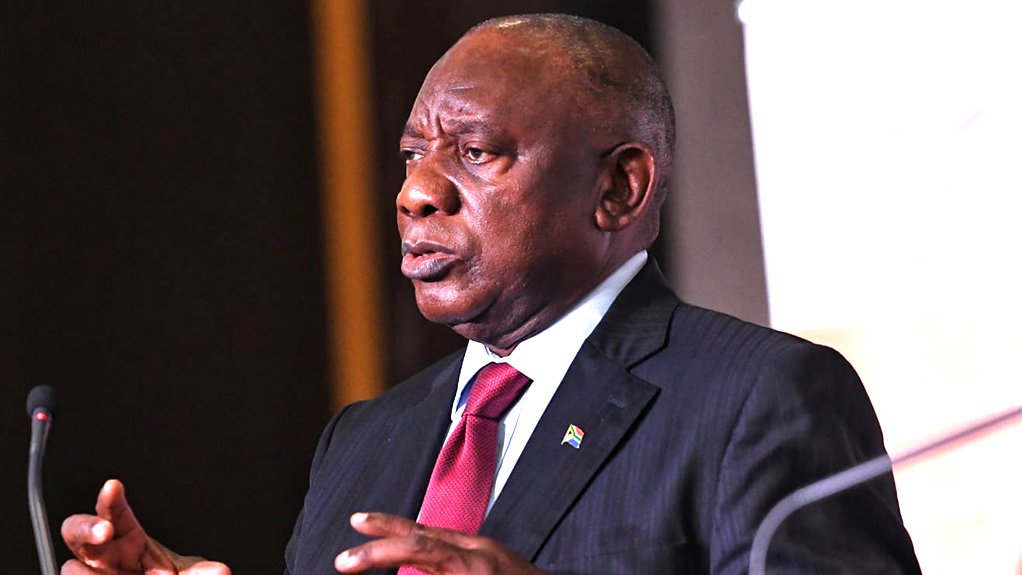President Cyril Ramaphosa said on Thursday that if South Africa’s economy is not creating enough jobs at scale to support the growing number of unemployed people, then citizens have to start to think creatively and innovatively.
Ramaphosa was addressing the yearly Basic Education Sector Lekgotla in Johannesburg, where he said that the high number of unemployed youth was something no country could afford, but that it was even worse if these youth were also not in education or training.
He said inclusive growth and shared prosperity can only be achieved when more people were working and that a productive workforce could not be achieved if citizens did not remake themselves as a nation committed to lifelong learning in various forms.
He highlighted that every year thousands of high school learners leave before sitting their matric exams, and explained that if learners were provided with more choices and better guidance, the education sector could reduce the proportion of learners that drop out.
The 2022 Matric pass rate was 80.1% - an improvement of 4% from the year before.
Ramaphosa said these results showed the deepening impact of education spending and the social wage more broadly. He added that these results must also encourage stakeholders in basic education to redouble efforts to address the extremely serious problem of learner dropout.
The three-stream model was critical if citizens were to adapt and thrive as a country in the new world of work, he added,
The three-stream model aims to increase the model, quality and type of access to quality education through increasing learner access to technical, vocational and skills subjects and schools.
“The skills that our country needs, the jobs that can grow our economy, and importantly, the avenues for entrepreneurship that are so sorely needed, can best be achieved by increasing learner access to technical and vocational subjects,” said Ramaphosa.
He said he was pleased to hear about the progress government is making in institutionalising the three-stream model.
“I understand that various technical and vocational specialisations have already been introduced in more than 550 schools, and a growing number of schools are piloting the subjects in the Technical Occupational stream. These subjects include Agriculture, Maritime and Nautical Science, Electrical, Civil and Mechanical Technologies, amongst others,” he explained.
Ramaphosa noted that government had to look beyond issues of labour absorption alone, and into the best ways to open up new pathways for employment and self-employment.
“This starts with developing skills for a modern and dynamic workforce through basic education. It cannot be emphasised enough that the greater the scope of basic education streams, the better our learners’ prospects are for securing employment and for self-employment after school,” he said.
STRENGTHENING BASIC EDUCATION OUTCOMES
Ramaphosa noted that learning losses during the Covid-19 pandemic would take some time to recoup, while government forged ahead with the comprehensive curriculum recovery plan.
“We need to pay particular attention to the negative impact of the pandemic on early learning because of the serious consequences for learners later. When learners have difficulty learning because they struggle to read and are not confident with basic numeracy, they are more likely to repeat classes,” he said.
He explained that this slowed progress through the grades, placed greater burdens on teachers and consumed resources which could have been directed to quality improvement.
Ramaphosa said government looked into concrete mechanisms to strengthen the use of technology to support curriculum delivery, particularly for learners from disadvantaged communities.
Care and support for teaching and learning must be institutionalised as a tool to improve learner outcomes and retention rates, he suggested. It must mitigate against learner dropouts and contribute to the nation’s overall well-being by investing in young people’s emotional stability, he added.
EMAIL THIS ARTICLE SAVE THIS ARTICLE ARTICLE ENQUIRY
To subscribe email subscriptions@creamermedia.co.za or click here
To advertise email advertising@creamermedia.co.za or click here











